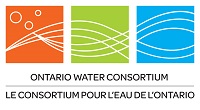It may not be the sexiest centre of excellence in North America, but a wastewater research and development hub is a step closer to being established in London.
The city’s civic works committee voted on Monday (Jan. 21) to support the creation of an $8-million Southern Ontario Water Consortium London Wastewater Facility (SOC-LWF) within existing city wastewater plants, in conjunction with Western University.
The city has already allocated $3.8 million to the project in the 2013 budget. The federal government through the Federal Economic Development Agency for Southern Ontario (FedDev) will pony up as much as $4.73 million through Western, which was described as the operating arm of the consortium.
The federal funding has a March 31, 2014 deadline attached to it, a timeline described as “tight” by the authors of the report circulated to the committee.
Council will discuss the subject at their Jan. 29 meeting.
According to city staff the centre would be the only one of its type in North America. It would attract business investment and create spin-off jobs. It was noted that five of the top six wastewater technology companies are located in the London-Guelph area.
“This is a very exciting project,” said city engineer John Braam. “It’s a consortium primarily of educational institutions with funding from the private sector to enable innovation on water side to be brought forward through to industry and users in a much more rapid time frame.”
He said the facility is anticipated to allow for full-scale testing of new technology, as compared to laboratory-based simulations.
The development of that facility is taking place inside of the city’s Greenway Pollution Control Centre, according to Braam.
Some changes to equipment at the centre used to process bio-solids has freed up space for an experimental area.
The city has been working on establishing the SOC-LWF since 2009. It was one of the pillars of the London Economic Development Corporation’s (LEDC) plan to boost the Forest City’s economy. Establishing a Fanshawe College campus downtown was another.
The committee heard companies in communities in the southwestern United States, Australia and China, for example are dealing with wastewater issues that could be explored at the SCO-LWF, such as how to turn raw sewage back into potable water.
With London already regarded as a leader in water treatment technology and techniques and Western’s reputation as a leader in North America in a number of research veins related to water, the new centre of excellence could draw those companies to set up shop here. In fact a number of companies have already signed memorandums of agreement to use the centre.
Once companies start prototyping and testing, London could be at the centre of a “really exciting cluster.”
“There are companies who have told us where they see opportunity to add 10, 20 staff members,” he said. “This is a long-term development area.”

